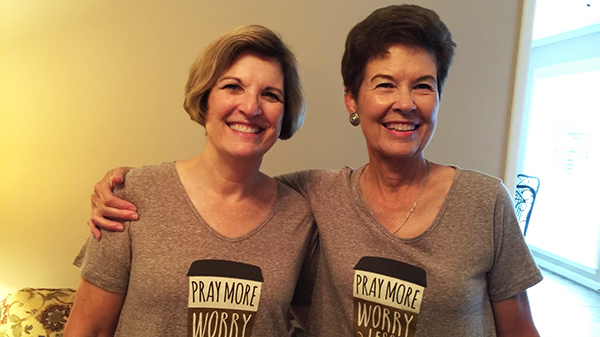Megan had two young children when she discovered she was pregnant with a third. Though surprised, she and her husband, Brandon, were excited and shared the news immediately with family and friends. Not long after, Megan lost the baby. A subsequent pregnancy also ended in miscarriage.
In their grief, Megan and Brandon found their church a safe place for to share their hearts.
“People shared their stories with me and told me it was OK to hurt the way I was hurting,” Megan said.
Not everyone is as fortunate. While some women who experience miscarriage want to grieve privately, others need to talk about their pain.
Valeri Cowart, group counseling coordinator at The Amelia Center, a grief counseling service of Children’s of Alabama, said, “Talking is what helps the most, whether that is talking to a counselor, pastor, friend or family member. If the emotions get stuffed down, the grieving person can get angry or depressed.”
Though dads often get overlooked, they too have experienced a terrible loss and may need to share their grief, though they may express that grief in different ways.
“Dads sometimes literally want to work through their grief by staying busy,” Cowart said.
“It’s important to be aware of differences in grieving styles. While the mom may not want to get out of bed, the dad may cope by working late. Friends and family members should be open and accepting of the differences.”
Communicate openly
Though no part of the grief journey is easy, being honest with family and friends about your needs can make interactions during times of suffering less tense.
The March of Dimes recommends that grieving parents communicate openly with those who want to help.
- Tell them that their calls and visits are important to you.
- Tell them you want their support even if they don’t know the perfect thing to say. Hearing honest words like, “I just don’t know what to say to make it better,” or “I want to help you but I don’t know how,” can be comforting. Sometimes people may say things that are not helpful to you like, “It was for the best.” Or “You can always have another baby.” Try to remember that they are doing their best to support you, even if what they say is hurtful.
- Tell them exactly what you need. Do you just want someone to listen? Do you want them to spend time with you at home? Do you need someone to bring you a meal or do your laundry? Try and tell them specific things they can do to show their support. For example they could take your children for an afternoon or do your grocery shopping.
- Ask them to use your baby’s name and to remember your baby. Let them know that even if you get pregnant again and have other children you won’t forget the baby who died.
- Thank them for their patience and support.
(March of Dimes, TAB)





Share with others: